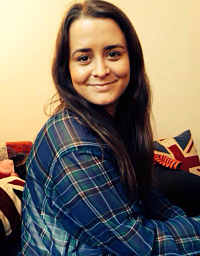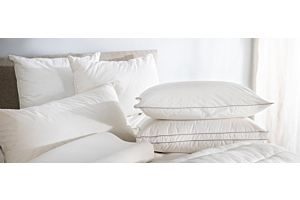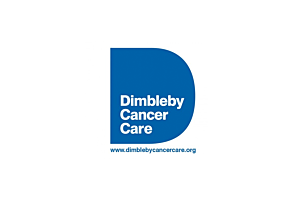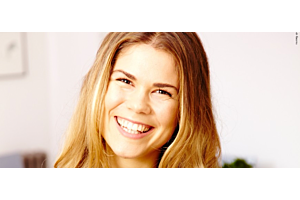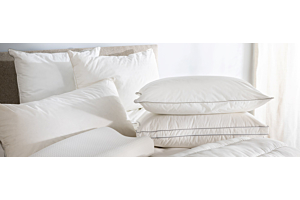The Sleep Council’s Top Tips For Better Sleep | Lisa Artis

We launched a Sleep Survey on our site a little while ago and asked the Great British public to fill it out. The results are in! And have given us a wonderful insight into our customers' unique sleep needs and some popular (and not-so-popular) sleeping trends.
So, with our survey findings, we sat down with Lisa Artis, sleep guru at The Sleep Council, for some sleeping insights and top tips...
Lisa's Top Tips...

1. Our survey found that… 12% of people go to bed later than Midnight.
Lisa said “There isn’t a ‘best’ time to go to bed, rather it’s about having a regular routine and getting enough sleep. Some people prefer to go to bed early and rise early (larks), while others are much happier going to bed late and getting up late (owls).”
“The obvious indicator as to whether you’re getting enough sleep is how you feel during the day – if you regularly feel tired, then you’re probably not getting enough quality sleep”.
2. Our survey found that…27% of people said their sleep routine varied each night.
Lisa said “A regular bedtime routine is important, as without a regular sleep pattern, your body clock will struggle to cope. However, if you are unable to go to bed at the same time each night, try to get some routine in the hour before you go to bed. Steer clear of devices and blue screens, like tablets and smartphones. Have a bath or a shower to help you wind down.”
“Caffeine should be avoided well before bedtime; so don’t drink tea, coffee, fizzy drinks or energy drinks after 3pm. Also, avoid eating a large meal or doing strenuous exercise too close to bedtime as both may keep you awake.”
3. Our survey found that…31% of people use their phone before bed.
Lisa said, “You really should avoid using all screens in the hour before bed as the blue light that emits from these devices messes around with your body’s circadian rhythms by suppressing the sleep-inducing hormone melatonin.”
4. Our Survey found that... 59% are getting the recommended 8 hours sleep.
Lisa said, “The recommended period of sleep for adults is between seven and nine hours, but the amount of sleep you need depends on your age, sex, health and other elements. It’s important to acknowledge that sleep cycles also change as we grow older. Children need more sleep – toddlers between 12 and 14 hours a day, while teenagers need between eight and nine. An older adult may need less sleep than they used to.”
5. Our Survey found that… 77% of people sleep on their side.
Lisa said, “Different people sleep in different positions. However, a comfortable bed is important. Research shows that sleeping on an uncomfortable mattress can rob you of up to one hour’s sleep per night, which adds up to a full night’s sleep over the course of a week! Our advice is to consider changing your bed at least every seven years.”
6. Our Survey found that... 30% of people sometimes need to take naps and 6% can't get through the day without taking a nap.
Lisa said “Naps can be perfectly healthy and we are actually designed for two sleeps a day – the main one at night and a nap in the afternoon. However modern life and work has changed the way we sleep and we now sleep for just one chunk (called monophasic sleep).
Generally, this works for most of us, but for those who are sleep deprived it can be a hard slog to get through the afternoon. This is where a planned daytime nap can help to improve alertness and memory, as well as relieving stress and fatigue. For naps, try and limit them to around 20 minutes as any longer and they may leave you groggy and interfere with your sleep at night.”
A huge thank you to Lisa Artis for her comments on our survey findings! She even gave a few extra tips to ensure you get the best night’s sleep, every night.
- Your sleep environment is very important – so make sure your bedroom is completely dark, quiet and at an ambient temperature.
- Diet can also affect sleep. The best foods for sleep include milk, cherries, chicken and rice, while fatty meat, curry and alcohol are some of the worst. As well as not eating a full meal too near to bedtime, be careful of alcohol as it can disrupt the quality of your sleep, as can Nicotine.
- When it comes to exercise, the most important thing is to feel fitter and healthier. If you are experiencing sleeping problems, try to exercise a little more or change the type of activities you do. But don’t overdo it. Contrary to popular belief, wearing yourself out physically is not likely to induce sleepiness.
We also recently teamed up with The Sleep Council to give you the chance to win a Blush Pink French Linen Bed Set and a White Classic Cotton Quilted Bedspread and it was a huge success! Thank you to everyone who entered, and a huge congratulations to the lucky winner and now proud owner of Soak&Sleep goodies.
Finding the right bedding to suit your sleep needs is vital for getting the optimum sleep you deserve. Shop our collection of pillows, duvets, toppers, protectors and much more and discover your perfect sleep santuary.

